Posts Tagged ‘PEN American Center’
PEN Journey 5: PEN in London, Early 1990’s
PEN International celebrates its Centenary in 2021. I’ve been active in PEN for more than 30 years in various positions and now as an International Vice President Emeritus. With memories stirring and file drawers of documents and correspondence bulging, I am a walking archive and have been asked by PEN International to write down memories. I hope this personal PEN journey might be of interest.
I moved to London where International PEN is headquartered in January 1990 from Los Angeles. I came with my husband and my 9 and 11-year old sons who rarely wore long sleeves, let alone coats or jackets. A few weeks into our resettlement, London spun in its first major tornado of the decade with hail and winds whipping at hurricane force and cars and trees toppled and a few rooftops airborne. The weather was highly unusual for London. Our family, who was still in temporary housing, took the unwelcome weather as a welcome of sorts, signaling that we might just be in for an adventure. Did you see that roof flying…!
There were still complaints: only four television channels, movies strictly restricted by age and when you did get into a theater, you had assigned seats, milk that went bad in a day, delivered on the stoop in glass bottles, a refrigerator that barely held enough food for a day, appliances that came without plugs…And where was the sun?
Yet the magic of the city quickly affected us all. My youngest son discovered the best skateboarders lived in London, and London (and England) was full of history and castles, and my oldest son, who was soon moved ahead a grade in school because he was highly talented in math, met students from all over the world in his class at the American School, a few of whom talked and imagined in his orbit. He was put on the rugby team to help socialize and the following year on the wrestling team, where he eventually, as an adult and by then dual citizen, wrestled for Great Britain in the Olympics.
For me, finding home in London meant connecting with PEN, both International PEN and English PEN. Writers can be members of more than one PEN center, though can vote with only one center. I’d begun my PEN journey in Los Angeles at PEN Los Angeles Center (changed to PEN USA West). When my second book was published, I also joined PEN American Center, based in New York, and now in London. I joined English PEN, the oldest and the original PEN center since the organization was founded by British writers in 1921. International PEN and English PEN had separate offices, but the Administrative Secretary of International PEN and the General Secretary of English PEN were longtime friends and actually lived next door to each other in Fulham. The two organizations worked independently, yet closely together.
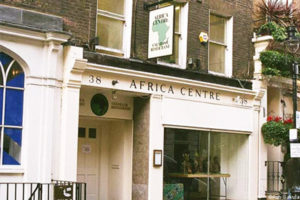
Early on I visited International PEN’s office, headquartered in Covent Garden on King Street in the Africa Centre. To get to the office at the front of the house, you had to go through the Africa Book Shop on the first floor. PEN had two rooms with several desks in the larger room with papers stacked everywhere. There was a filing cabinet and a photocopier and just enough space to squeeze between to get to the desk looking onto the street.
International PEN was kept functioning by the stalwart and efficient Elizabeth Paterson, who I don’t recall getting angry at anyone even as the work piled on and people around the world in PEN centers asked more and more of her, including the smart, demanding International Secretary Alexander Blokh. Alex flew in every month, usually from Paris, and displaced the Writers in Prison Committee’s small staff from the second office in order to conduct the business of PEN around the world. Alex was a former UNESCO official, and at that time UNESCO was one of International PEN’s major funders. When UNESCO was formed, according to Alex, it established organizations for the various arts, but when it came to literature, it recognized that PEN already existed, and so its outreach and funding funneled through PEN. Over the years PEN has grown more and more independent of UNESCO support.
Elizabeth, with her quiet intelligence and subtle humor, managed to keep International PEN running day to day while Alex developed the literary and cultural programs with the centers and the standing committees—the Translation and Linguistic Rights Committee, the Peace Committee, and the Writers in Prison Committee (WiPC). The WiPC tended to operate more autonomously with its elected chair Swedish publisher Thomas von Vegesack and before him Michael Scammell. When I arrived in London, there was also a petite gray-haired woman Kathleen von Simson, a volunteer who’d helped manage the Writers in Prison Committee work for years. PEN had recently hired a paid Coordinator Siobhan Dowd whose task was to professionalize the human rights work, and Siobhan hired researcher Mandy Garner. The two of them worked in the tiny second room. Siobhan eventually crossed the ocean to head up the Freedom to Write program at American PEN.
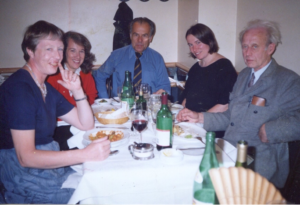
Fall 1990. Left to right: Elizabeth Paterson, Joanne Leedom-Ackerman, Per Wastberg (former PEN International President), Siobhan Dowd, Bill Barazetti
Also finding space on King Street was the Assistant Treasurer (and later International Treasurer) Bill Barazetti, who at that time was an unsung hero from World War II. It was later publicized that Bill had smuggled hundreds of Jewish children out of Prague with false identity papers he arranged. He was a wiry gray-haired former intelligence officer who’d also interrogated captured German pilots. Alex Blokh, whose pen name was Jean Blot, was an exiled Russian Jew, a lawyer and had also been active in the French Resistance during World War II, and Elizabeth had endured the bombings in London during the War. Though it was 1990 and the Berlin Wall and other barriers which had gone up after World War II were now falling, in the PEN office there was still a feeling of that post-War period, an abstemiousness and a fortitude of the dedicated amateur who knew what sacrifice was and endured no matter what. I couldn’t articulate the atmosphere at the time, but as an American born after the war, grown up in Texas and moving to London from Los Angeles, I felt the contrasts and the constraints. One small incident I remember was when a donation for a baby gift for the newly hired Sara Whyatt was being gathered. I offered £20 for the pot and was told by Elizabeth, “Oh, no, that amount would embarrass her.” The concept of anyone being embarrassed by a pooled £20 contribution silenced me. I put in £10 instead, still considered a large amount. Because I was new and an American, I tried to listen and learn, but I understood expectations and horizons were different.
A generation of my own joined the office in the persons of Jane Spender, a former editor, smart and literary who worked with Elizabeth and later Gilly Vincent, who took on the part time assignment to help with development work for the eventual International PEN Foundation. (see PEN Journey 4) Later Gilly became General Secretary of English PEN. I quickly learned to respect the differences; the American way was not the British way. I remember a fundraising event in which there must have been 20 major English writers featured and attending, and the ticket price was £25. The PEN Foundation netted perhaps £3000 that evening. In New York with that line up of writers, I am confident American PEN would have added at least one, if not two, zeros to the proceeds, but we were in London, and the event was not a glittery affair but more like a large family gathering of literary friends at someone’s home.
PEN International moved its offices in 1991 from Covent Garden to Charterhouse Buildings in Clerkenwell nearer the City of London. The new offices were on the top floor of a bonded warehouse, and I never met anyone who didn’t arrive breathless after climbing the steep four or five flights of stairs. There was no elevator, but there was an outside hoist where PEN could load supplies and mail out the window and drop or raise these to and from the ground, preferably not in the rain. Elizabeth set the door code as the beginning and ending years of World Wars I and II, an 8-digit code everyone could remember. The offices at Charterhouse Buildings were spacious compared to King Street—two large airy rooms, one for the Writers in Prison Committee and one for all the other work of PEN, a spacious entry room used as a meeting area and a smaller private office where the International Secretary could work or small meetings could be held. All the rooms were painted “magnolia”–a creamy white/yellow color. The full-time staff by then was, I think, three, along with four or five part-time staff and volunteers, including Jane Spender, Peter Day, editor of PEN International magazine, Bill Barazetti and later his daughter Kathy and occasional interns.
When Siobhan prepared to leave for the U.S., Thomas asked me to interview candidates with him for her replacement. Between interviews he explained to me his view of England in the constellation of Europe by a story of when a fog settled over the English Channel and the headline in a British paper announced: Continent Isolated. Later, when the Channel Tunnel finally connected Great Britain to France in 1994, I sent Thomas a note and a copy of the headline from a British paper: “You’ll be glad to know, Thomas: Continent No Longer Isolated, the headline read.
Thomas and I agreed on the best candidate, and PEN hired Sara Whyatt as the new Program Director of the Writers in Prison Committee. Sara came to PEN from Amnesty and set about further professionalizing WiPC’s research and advocacy work. Sara and Mandy split up the globe, with Mandy focusing on Latin America and Africa.

Across London in Chelsea, English PEN rented offices from the London Sketch Club on Dilke Street where it held weekly literary programs, a monthly formal dinner, an annual Writers Day Program honoring one writer—Arthur Miller, Graham Greene, and Larry McMurtry were three I recall—and a mid-Summer Party. The literary programs and dinners, held in the Sketchers studio and bar, featured writers such as Michael Ignatieff, Germaine Greer, Michael Holroyd, Jan Morris, Rachael Billington, A.L. Barker, Penelope Lively, Andrew Motion, A.S. Byatt, Margaret Foster, William Boyd, Margaret Drabble, Iris Murdoch, and frequently Antonia Fraser, Harold Pinter and Ronald Harwood, just to name a few.
When I moved to London and joined English PEN, the General Secretary Josephine Pullein-Thompson, a stalwart writer/member, managed the organization and kept it running with minimal staff and with active members. Author of young adult novels, Josephine wrote books about young girls and horses. When I close my eyes, I can hear her gruff voice and see her square face and think of horses. She was pragmatic and no-nonsense and what I think of as the epitome of a certain era of British resolve. She befriended me early, I think, because I was focused on a task—getting charitable status for PEN International which ultimately allowed English PEN to claim the same. It was Josephine years later who nominated me as a Vice President of International PEN.
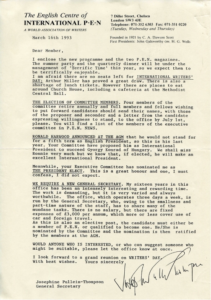
Members of English PEN were passionate about PEN’s mission to protect and speak up on behalf of writers under threat in oppressive regimes. Among activities, members, including notable British writers such as Ronald Harwood, Harold Pinter, and Antonia Fraser, who were good friends, and Moris Farhi, a Turkish/British novelist with a great beard, great girth and great heart, who later succeed me as Writers in Prison Chair, and dozens of other English PEN members held vigils, often by candlelight. They protested outside embassies of countries where writers were in prison. They got press coverage and ultimately helped secure the release of writers, particularly those in former Commonwealth countries like Malawi.
Malawian poet Jack Mapanje recalled his spirit lifting when he saw the press clippings of Harold Pinter and others protesting outside the Malawi Embassy in London on his behalf. When he was released, he resettled in England and joined English PEN.
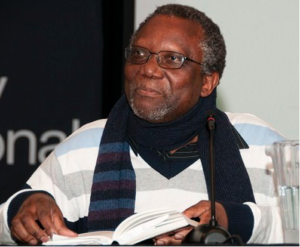
Jack Mapanje
Next Installment: Freedom and Beyond…War on the Horizon
Spring and Release
I saw the first daffodils today…and forsythia…and the buds on cherry blossom trees. Spring with its regalia is starting to blossom, at least here in Washington, DC.
In the freedom of expression community renewal is heralded this week by the release of writers from prison in a number of countries, including Qatar, China and Azerbaijan. While the writers were unjustly imprisoned in the first place and many hundreds still languish in jails because they have offended governing powers, the releases of Qatar poet Mohammed al-Ajami after almost five years in prison and Chinese writers Rao Wenwei and Wang Xiaolu and half a dozen writers in Azerbaijan are cause for quiet celebration.
Qatar: In the fall of 2013 another PEN colleague and I stood outside the sprawling prison in the desert around Doha where Mohammed Ibn al-Dheeb al-Ajami was held in solitary confinement. After meetings with Justice Ministry officials, we’d understood we would be allowed into the prison for a visit. However, after five hours waiting in the desert wind, we were denied access. Al-Ajami’s family, who were visiting inside, told us later that Al-Ajami knew we were there and took some heart in that. Al-Ajami was imprisoned for “insulting the Emir” in two poems which he read at a private apartment in Cairo but which were surreptitiously recorded and posted by a student on YouTube. One of the poems “Tunisian Jasmine” expressed support for the uprising in Tunisia that launched the Arab Spring and challenged rulers throughout the region. Al-Ajami, who is the father of four, was originally sentenced to life in prison, reduced to 15 years.
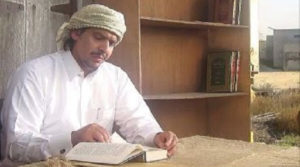
PEN centers around the world, including American, Austrian, English and German PEN worked on his behalf as did Amnesty, Human Rights Watch and other organizations championing freedom of expression. Many voices protested, many hands tried to push open the prison door. Just last week at a Washington dinner I noted Al-Ajami’s imprisonment to an individual headed to Qatar for high level meetings. Those who deal with Qatar are always surprised that this Emirate which boasts education and partnerships with Western universities would imprison a poet for his poems. It is not a comfortable outcome that it is a pardon and not an apology by the Emir which brought about Al-Ajami’s release, but it is still cause to be glad.
China: There are more than 40 writers in prison in China, including Nobel Laureate Liu Xiaobo. Recently two—Rao Wenwei and Wang Xiaolu—were released early. Rao Wenwei is a writer charged with “inciting subversion of the state power” for articles published on the internet. His 12-year sentence was cut short by four years with his release. Wang Xiaolu was arrested for a story on the stock market crash on suspicion of “fabricating and disseminating false information on the trading of securities and futures.” Through the efforts of PEN centers, particularly the Independent Chinese PEN Center, the cases and situation of writers in prison in China stay at the forefront of protests.
Azerbaijan: Half a dozen writers are being released in Azerbaijan this month. The Baku Court of Appeals is expected to release journalist Rauf Mirkadirov today, according to Sports for Rights coalition which includes PEN, commuting his six-year prison sentence to a five-year suspended sentence. President Aliyev has signed a pardon decree that includes 14 political prisoners, including the writers Parviz Hashimli (journalist), Abdul Abilov (blogger), Hilal Mammadov (journalist), Omar Mamedov (blogger) and Tofiq Yaqublu (journalist). The European Court of Human Rights also issued a judgment in Rasul Jafarov’s case finding violations of Rasul’s rights to liberty and security. Rasul is expected to be released shortly. Dozens of political prisoners, however, remain in Azerbaijani jails, including journalists Khadija Ismayilova and Seymur Hezi.
(*For background on any of these cases or the many remaining political prisoners in Azerbaijan, here’s the full list with case details: http://www.helpsetthemfree.org/wp-content/uploads/2016/02/The-list-of-Political-Prisoners-in-Azerbaijan_December-2015.pdf)
Qatar: A Poet in a Desert Cell
(This piece also appears on GlobalPost.)
DOHA, QATAR — We stood outside the guard house in the desert wind on the outskirts of the city. Doha Central Prison rose on the horizon of a barren, rock-strewn landscape, electric wires cutting across a cloudless sky. We had been told we had permission to visit Qatari poet Mohammed al-Ajami, whose 15-year sentence for two poems had been confirmed the previous day by the high court.

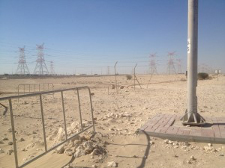
For five hours we stood, paced, sat in broken chairs, negotiating on mobile phones with the Attorney General’s office. The prison authorities had not received the request for our visit. The guards changed twice while we waited, guards from different nationalities as are most of the workers in Qatar. They were friendly, shared fresh oranges with us as the hours passed, but had no authority to help.
Inside the prison members of al-Ajami’s family were visiting him and knew we were out there. Al-Ajami knew we were there and wanted to see us. No one had gotten this far, the family later told us. But in the end we were denied.
For the last two years Mohammed al-Ajami has been in solitary confinement with limited access to visitors. A known poet in the Gulf and the father of four, al-Ajami was a literature student at Cairo University in 2010 when he recited a poem in his apartment among friends, a poem that allegedly criticized the Emir. The poem was in response to a poem by a fellow poet, but one of the students in the apartment recorded al-Ajami and uploaded the reading on YouTube. According to al-Ajami’s lawyer Dr. Najeeb al-Nauimi, a former Justice Minister in Qatar, the poem was spoken in a private setting and violated no law. Another of al-Ajami’s poems “Jasmine” was circulated on the internet and expressed support for the uprising in Tunisia and criticized all the Arab regimes.
Sixteen months later, al-Ajami was summoned in Doha and arrested, eventually charged with “encouraging an attempt to overthrow the existing regime,” “claiming that the Emir misused and not abided by the Qatar Constitution” and “criticizing the Crown Prince,” who has subsequently become the Emir. Al-Ajami was sentenced to life imprisonment after a trial held in secret where the Investigating Judge, a non-Qatari, was also the Chief Judge. [The Emir appoints all judges on recommendation from the Supreme Judicial Council, 75% of whom are foreign nationals, dependent on residency permits.] Later on appeal, Al-Ajami’s sentence was reduced to 15 years.
As representatives of PEN International and PEN American Center we—two American women—had come to Doha to argue for the release of Mohammed Al-Ajami, but by the time our planes landed, the court had already upheld the 15-year sentence. All judicial appeals were now exhausted.
A country of two million people, but with only 250,000 citizens, Qatar is one of the, if not the, richest nation per capita. During his reign the former Emir set a course of modernization and brought reform to the government, brought institutions of higher education to the kingdom and developed programs in the arts and set up a Center on Media Freedom. The West looks to Qatar as a leader in the region. The imprisonment of a poet on an offense of lese majeste has confounded many though in an interview, the Prime Solicitor General insisted the charges were not about freedom of speech but were brought because the poet publicly offended people and urged the overthrow of the government.
In Qatar itself the case has received little coverage. The news media is owned by the government and the Emir. Those familiar with the ways of the kingdom say the only recourse now for al-Ajami is a pardon by the Emir. However, if an apology is necessary for that pardon, a standoff may occur. According to al-Ajami’s lawyer, the poet has questioned why he should apologize for having spent the last two years in solitary confinement for sharing a poem in a private setting. His lawyer notes that Al-Ajami has had his career disrupted; he has missed seeing his family for two years, including missing the birth of his youngest child.
As I flew out of Qatar, I stared at the desert below now filled with sky scrapers and modern museums rising from the land. I considered the math. Over 90% of the jobs are occupied by men and women of other countries who have no rights of citizenship and can be deported. Only one in ten people are citizens; half of these are women, who have limited rights; over a quarter are children and the elderly. The country is run by a very small minority. I questioned whether the math was on the side of history.
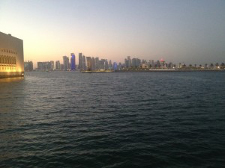
Extensive gas reserves developed in the 1990’s have given Qatar its huge income and given the country a seat at the leadership tables of the region and the globe. But if the country puts its poets in prison, one must wonder. On the other hand, if the new Emir, just 33 years old, educated in Britain, pardons poet al-Ajami unconditionally as PEN urges, then perhaps the curve of history will extend outwards, at least for a while.
[Mohammed al-Aljami is an honorary member of PEN American Center. PEN’s representatives in Doha were Joanne Leedom-Ackerman, Vice President of PEN International and Trustee of PEN American Center, and Sarah Hoffman, Freedom to Write Coordinator for PEN American Center.]
To sign a letter urging a pardon for Mohammed al-Ajami, click here.
China from the 22nd Floor
On June 4 China will face the 19th anniversary of the killing of citizens occupying Tiananmen Square. Nineteen years ago as president of PEN USA, I remember well sorting through dozens of unfamiliar Chinese names as we sought to untangle what writers had been arrested. Today there are at least 42 writers imprisoned in China.
I wake up 22 stories in the air. Most of Hong Kong is in the air with thousands of high rises shooting into the sky. I’m in a cubicle—two small beds pressed against each wall, a tiny shelf between, a TV mounted on the wall at the foot of one bed. At the head of the bed is a large window so the room is airy and looks out on other windows in the sky.
I wake in the middle of the night because of jet lag and then again early in the morning before the sun rises. I turn on the TV whose screen flashes the financial news of Hong Kong—the major world indices, Hong Kong currency exchange rates, global gold prices, Hong Kong stock market prices, statistics on which the financial world relies, accompanied by jazz and elevator music. The only news channel on this hotel TV is the Chinese Broadcasting Company from the mainland; it broadcasts the mainland government’s view of the news.
OLYMPIC RELAY– A POEM ON THE MOVE
One of the more creative and moving responses to the Olympics in China this year is a poem relay, initiated by writers and members of International PEN. The poem June, was written by Shi Tao, who is currently serving a 10-year prison sentence for sending to pro democracy websites a government directive for Chinese media to downplay the 15th anniversary of the Tiananmen Square protests.
You may recall in 2004 Shi Tao was identified when Yahoo! turned over his email account to the authorities. Charged with “illegally providing state secrets to foreign entities,” Shi Tao now faces the next decade in prison. His poem June is his memorial of the 1989 Tiananmen Square crackdown.
June
By Shi Tao
My whole life
Will never get past “June”
June, when my heart died
When my poetry died
When my lover
Died in romance’s pool of blood
June, the scorching sun burns open my skin
Revealing the true nature of my wound
June, the fish swims out of the blood-red sea
Toward another place to hibernate
June, the earth shifts, the rivers fall silent
Piled up letters unable to be delivered to the dead.
(translated by Chip Rolley)